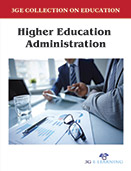Education and Psychology

Higher education comprises all the activities a given country considers to be higher education - not only those that happen within ordinary universities and graduate schools, but shorter term education and training courses (polytechnics, junior colleges, and various forms of technical specialty schools) that are 2-3 years in length, and even correspondence courses that make use of information technology and are targeted at a broad population of students. While education became a vast undertaking, administrative bodies and methods remain as they were at the beginning of the century when the volume of education was only a fraction of what it is today. The range of education has been greatly extended, but the administrative structures have not been reorganized correspondingly. The existing administration, handed down from a political past, is essentially concerned with controlling; its purpose is to make certain that everything is done in accordance with procedure. It is generally slow and hesitant, dilatory and time-consuming. If it is to be able to successfully implement the plans of educational development, the traditional administration must be radically changed. Growing demand for university education has reinforced and increased the value of a university degree both to the individual graduate and to society in general. Enhancing the quality of university education by providing more interactive and engaging learning experiences is consistent with improved academic performance, knowledge acquisition and skills development. In short, a high quality learning experience produces more engaged and productive students, who, upon graduation, become future lawyers, doctors, teachers, thinkers, scientists, managers, leaders and innovators.
Illustrating strategic planning and accounting within the organization and administration of higher education institutions, this book entitled “Higher Education Administration” provides effective and proven strategies for today’s change-oriented leaders. This book examines how social media are redefining what university communities are and the purposes and practices of the various functional areas in Higher education. Higher education faces many more challenges today than ever before in its history. Colleges and universities are challenged to serve a variety of students, from those who are academically gifted to those who are under-prepared for college-level work. They are challenged by the shrinking pool of traditional college-aged students in the United States. They are challenged by the political pressures regarding the cost of attending college and the growing student debt upon leaving college. These challenges are hitting higher education from many fronts. In the process of developing professionals, leaders and managers in educational system, it is necessary to introduce them to the nature and problems of Academic Administration. Since this area is dynamic in nature involving decisions people make, the organisation of activities in 41 which they engage and the interactions that take place among them, based on the system contingency approach. In this perspective, the academic administration encompasses Management Principles, Organisation Theory, Personnel Management, Financial Management, etc. An application of the sound knowledge, in these and related areas would enable the professionals in the field to improve the effectiveness of their organisation. This edition serves as beneficial guide to address the needs of higher education professionals across a wide range of administrative functions within college and university environments.